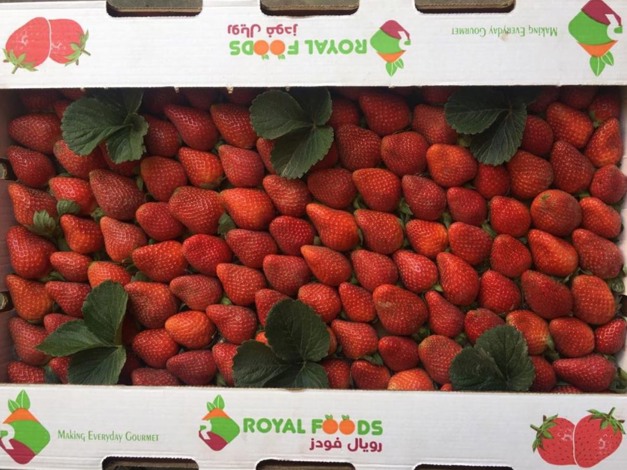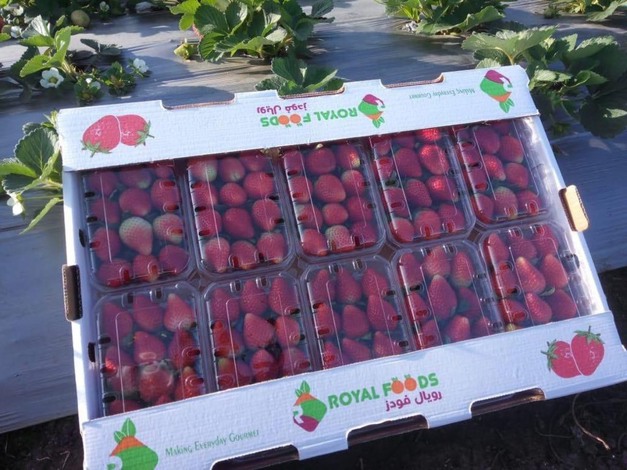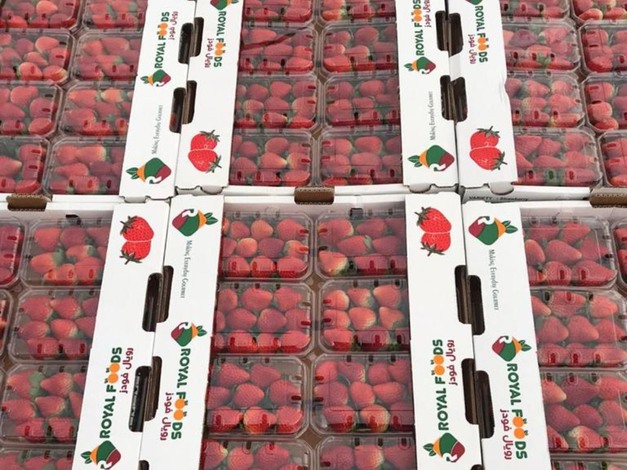With the Egyptian strawberry campaign fast approaching, growers are gearing up in high spirits, while expecting a few complications. Abdullah ElRehiewy, CEO of Royal Foods, gives a behind-the-scenes account of the pre-campaign.

Weather and phytosanitary conditions
The climate was the culprit of last year's strawberry season in Egypt. Sudden thermal variations and a generally warmer climate have complicated growing and considerably increased production costs. However, the situation seems to have improved for the 2023-2024 season. Elrehiewy says, "Climatic conditions have gotten better this year. It should be remembered that strawberries are produced in Egypt in exceptional conditions, in a desertic subtropical climate with a rare rainfall of less than 50 mm per year. We produce thanks to the great Nile river, in fertile irrigated soil and excellent geographical position, which together make this special crop highly productive and profitable. Temperatures are the only risk, but they haven't been extreme this season. That said, we continue to encounter phytosanitary problems. We deal with them in the best possible way, using available measures which increase our production costs."
The sector will therefore return to its production increase momentum of the 2021-2022 season, Elrehiewy explains. "The Egyptian strawberry market grew significantly in 2022, with an increase of 5.6% on the previous year. Strawberry deliveries overseas increased by 9.3% in 2022. The UK was the main destination for Egyptian strawberry exports, with a 32% share of total exports, and Saudi Arabia, with an 11% share, which is our target market, in addition to the Gulf countries, rose to third place in this ranking. The average export price of strawberries per tonne in 2022 was $4,755, down 2.2% on the previous season, but this is negligible as the export price grew fastest in 2021, increasing by 40%. Exports will gradually increase in the near future (Source: IndexBox 2023)".

You can't change a winning horse
As the world's leading exporter of frozen strawberries, and a top-10 exporter of fresh strawberries, Egypt draws its strength from a less expensive production model. Elrehiewy elaborates: "The vast majority of strawberries in Egypt, and all of our production at Royal Foods for Export, are grown outdoors under plastic film. Plastic film is used to increase soil heat, store moisture, prevent weed growth, etc., making production cheaper than the competition and harvesting quicker and easier. Growing strawberries on plastic film increases yields and the fruit ripens earlier. Most importantly Strawberries grown on film are up to 40% cheaper than conventional strawberries grown in the ground".
The grower continues: "Growing strawberries in tunnels and greenhouses means higher yields, but also higher costs. There are a few greenhouses in Egypt, mainly in the north of the country, and a few tunnels, but realistically I don't think Egypt needs them yet. We support cutting-edge technology, right down to greenhouses with LED lighting, but our early strawberries are ready for Christmas without them. Clearly, strawberries produced in tunnels and greenhouses are impeccable, but we take advantage of our God-given climate and strive to remain the world's leading producer of frozen strawberries and to become the leading producer of fresh strawberries. Agro-climatic conditions are on our side, and we'll keep up with modern operations, while carefully monitoring value for price".
As for varieties, each season brings something new to the varietal selection in Egypt, while maintaining stability in the most produced varieties in terms of volume. Elrehiewy adds: "Many strawberry varieties are grown in Egypt, but as long-standing producers and exporters, we have to be guided by two criteria when choosing varieties: 1. Which variety do our target market customers want? 2. which variety will give the best quality and yield in the Egyptian climate? This season, these varieties are Fortuna, Winter Star, Red Merlin, Festival, and Sweet Sensation".

Transport costs could change the market map
Alongside phytosanitary problems, one of the main difficulties for the upcoming season will be the repercussions of difficulties in other sectors, starting with transport. According to Elrehiewy, "This strawberry season, due to high inflation, is very different from previous ones, both in terms of demand in certain markets and many logistical problems in all modes of transport. We experienced these problems with other crops before the coming of the strawberries season."
"Because of the difficulties of transport, particularly by air - mainly used for fresh strawberries - transport prices have risen. We can't fully pass on the price difference caused by such an increase to the customer, but we share it in partnership, which means lower revenues for everyone. Demand for our products has fallen in some markets, but new markets are opening up, particularly interesting for us in Eastern Europe and Asia, and the Saudi market, the most coveted, is growing," concludes Elrehiewy.
For more information:
Abdullah Elrehiewy
Royal Foods for Export
Tel: +20 111 120 1208
Email: [email protected]
Nevenka Škorić
Tel: +385 91 1007 111
Email: [email protected]
www.royalfoods.co
